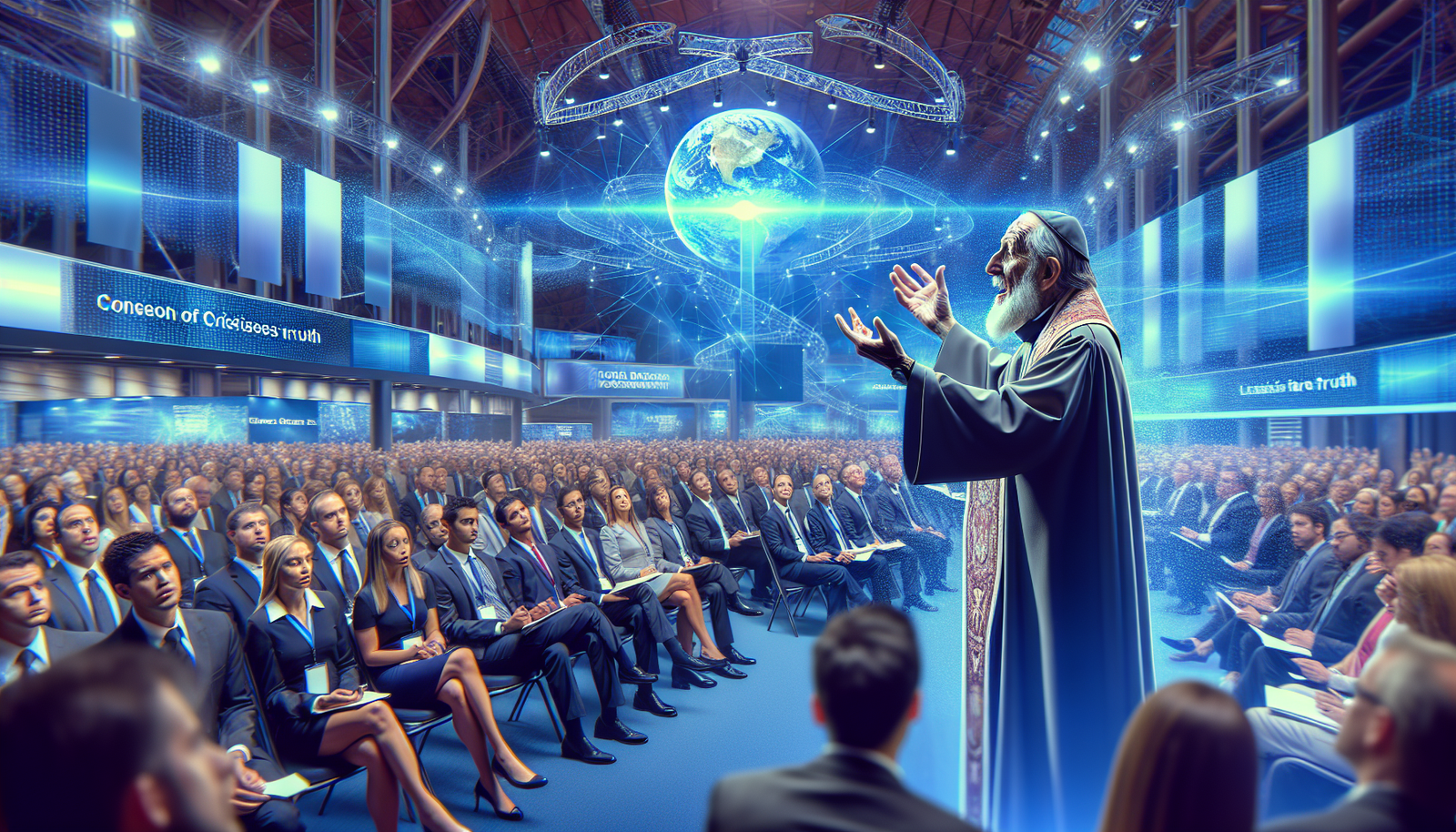Artificial intelligence represents a double-edged sword, challenging the ethical foundations of our society. Pope Francis draws attention to the pernicious dangers posed by this technology, exacerbating the *crisis of truth* that threatens humanity. This message is set against an urgent backdrop, where decisions made by world leaders in Davos could redefine the contours of human existence. The ability of AI to mimic human thought raises unsettling questions about the responsibility and the *safety* of this technological advancement. Vigilance is required in the face of unpredictable consequences, as authenticity gradually fades from our exchanges.
The Pope Highlights the Implications of AI
Pope Francis expressed major concerns during the World Economic Forum in Davos, shedding light on the growing role of artificial intelligence (AI) in shaping the future of humanity. His speech alerted political and economic leaders to the risks associated with this technology, notably its potential to exacerbate the crisis of truth. AI, with its ability to produce content indistinguishable from human creations, raises questions about the very nature of truth in public discourse.
Call for Vigilance and Responsibility
Francis urged governments and businesses to exercise caution and vigilance in managing emerging technologies. The ability of AI to learn and make decisions autonomously raises fundamental ethical questions. What happens when these systems are no longer just tools but become influential actors on the social and economic stage? This questioning opens the door to a profound reflection on the responsibility that falls on the designers and users of AI systems.
Dangers of Deepfakes
At the heart of concerns are “deepfakes,” these images and videos manipulated by AI, represent a pernicious danger to the integrity of information. The Pope condemned this development, insisting that AI can amplify misinformation and distort reality. The difficulty in distinguishing what is true from what is falsified undermines not only public debate but also weakens trust in institutions.
The Societal Impact of AI
While recognizing the transformative potential of AI, Francis warned against its use to justify a reductive vision where technology is presented as the solution to all the world’s problems. The de-responsibilization of human actors in the face of complex societal challenges is a formidable drift that could lead to increased injustices.
Reactions from Economic Leaders
Discussions in Davos also revealed divergent views on the future of AI. Marc Benioff, CEO of Salesforce, suggested that the next generation of executives would face the coexistence of human and digital workers. This observation echoes the idea that AI will radically transform the world of work but raises questions about the future of traditional jobs and the place reserved for humans in this ecosystem.
A Tool for the Common Good
Ruth Porat, chief investment officer at Alphabet, highlighted the potential benefits of AI in the medical field. Her remarks emphasized the importance of AI in democratizing access to quality healthcare. Citing Google’s AlphaFold program, which predicted the structures of millions of proteins, Porat illustrated how AI could revolutionize drug discovery and significantly improve public health.
Toward Necessary Regulation
The statements of Francis at the Davos summit raise questions about the need for robust regulation of AI technologies. The potentially devastating effects of content generated by these systems, such as misinformation and manipulation of discourse, cannot be ignored. In this regard, studies are focusing on evaluating the implications of AI on the informational landscape. The article on the devastating impact of AI-generated content highlights this growing concern in contemporary debate.
Conclusion and Uncertain Future
The Pope concludes his remarks at Davos by emphasizing the need for a deep and faithful dialogue on technology and its development. As innovations continue to shape our world, the ethical and social questions they raise are more relevant than ever. They require a collective reflection on the values we wish to uphold in this AI-shaped future. In this regard, the study of science fiction, such as the work “Hum” by Helen Phillips, offers fascinating insights into a future profoundly transformed by these technologies – available at actu.ai.
Frequently Asked Questions about the Pope’s Warning at the Davos Summit on the Dangers of AI
What are the main dangers of AI according to Pope Francis?
Pope Francis highlights ethical concerns, notably the risk that AI contributes to the “crisis of truth” by making it difficult to distinguish between information produced by humans and that generated by machines.
Why does the Pope emphasize the importance of vigilance regarding AI?
He calls for vigilance so that governments and businesses exercise “due diligence” in managing the ethical and security challenges related to AI, particularly concerning human responsibility.
How could AI exacerbate the crisis of truth?
Because the results generated by AI are often indistinguishable from those created by humans, this can lead to misinformation and a erosion of trust in information sources within the public forum.
What are the societal implications of artificial intelligence according to the Pope?
The Pope believes that AI poses essential questions about the role of humanity and the moral responsibility of technology creators, highlighting its potential impact on human dignity.
What call to action does Pope Francis make to leaders at Davos?
He urges them to reflect on the consequences of introducing AI in various fields, particularly concerning ethics and truth, demanding a responsible and humane approach to technological development.
How is the Pope’s personal experience with AI significant?
The Pope has encountered deepfake images of himself, illustrating concretely how AI can distort reality, thus highlighting the dangers of digital manipulation.
What solutions does the Pope suggest to mitigate the risks posed by AI?
He does not propose specific solutions but calls for collective reflection to ensure that AI is developed and used in a manner that respects human and ethical values.






